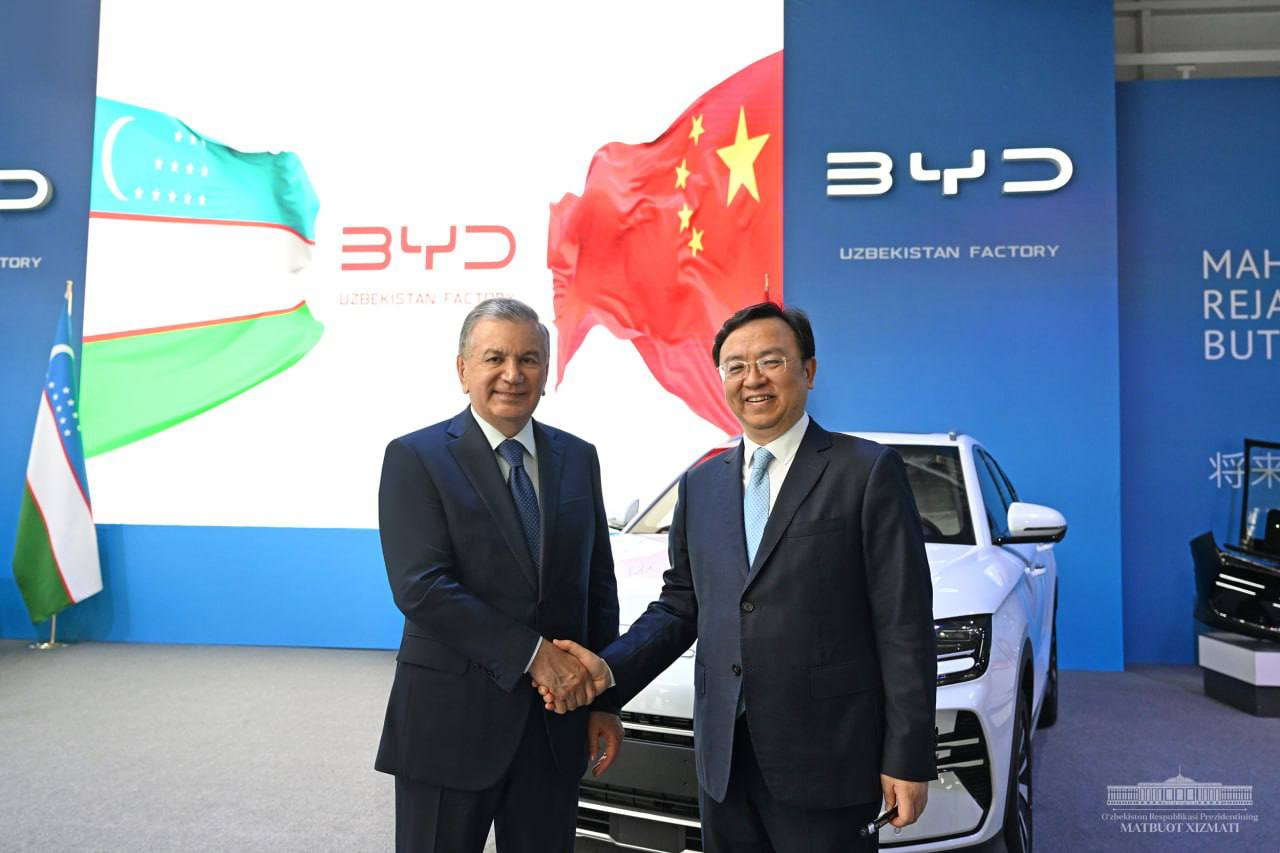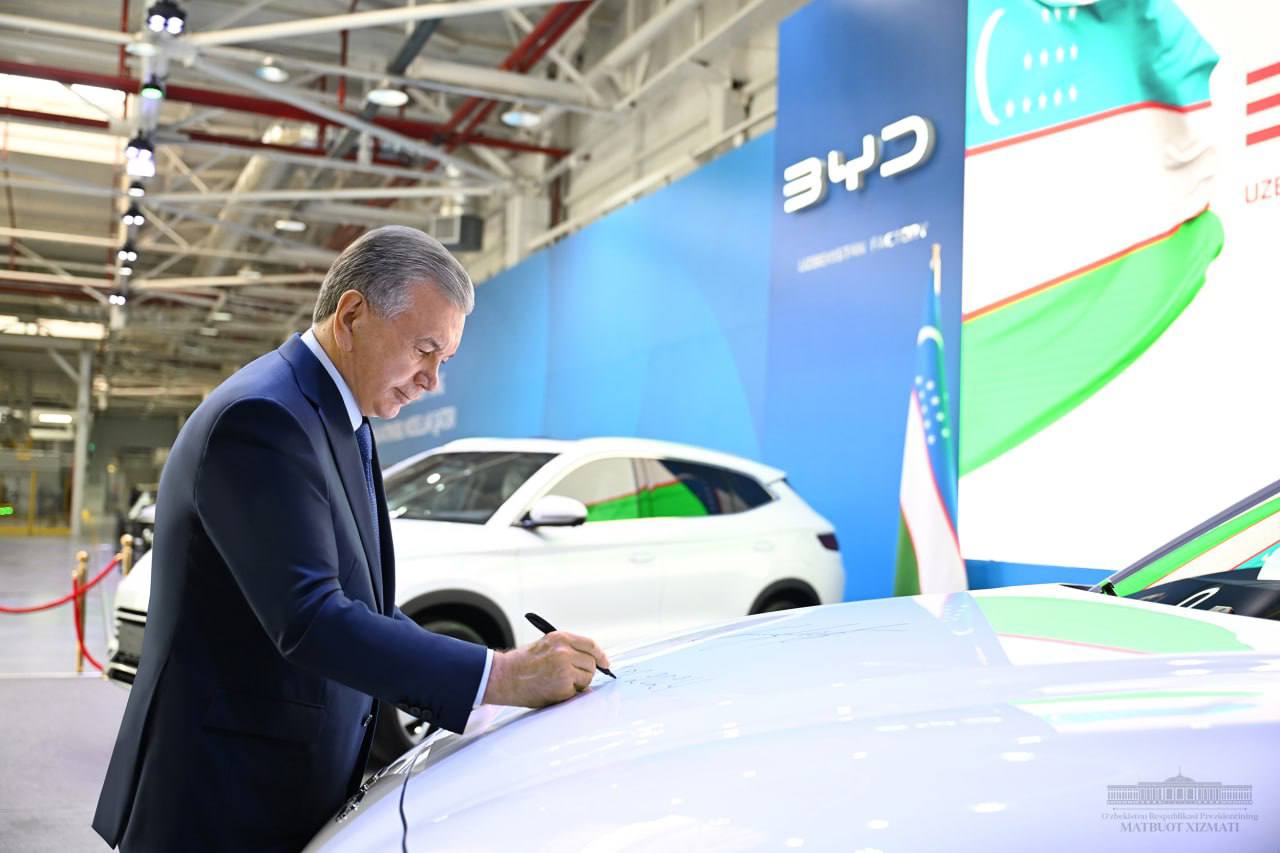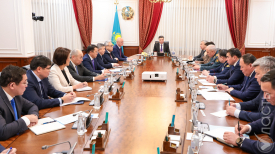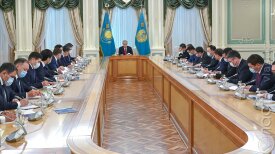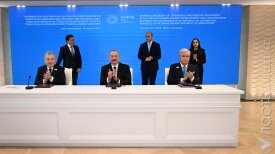With a pompous ceremony at the end of June, Uzbekistan’s President Shavkat Mirziyoyev celebrated the production of the first BYD electric car, produced in a brand new factory in the Jizzakh province.
While the EV market in Central Asia seems to be growing, most of the electric cars that the production lines of the region will churn out seem to be earmarked for export, with Russia being one of the main destination markets.
Uzbekistan First
In 2024, BYD is poised to overtake Tesla as the global leader in EV manufacturing, according to Counterpoint, a global technology market research firm.
The Shenzhen-based company opened a new factory in Uzbekistan on June 27, in a joint venture with state-owned UzAuto. BYD pledged a $160 million investment in the production line, which is poised to put around 50,000 cars to market in its first phase, with an outlook of up to 500,000 cars. As the factory develops and expands, the company also plans to grow its partially China-trained workforce from 1,200 to 10,000.
Located in Jizzakh, Mirziyoyev’s birthplace, the plant represents the first large-scale investment of its kind in Central Asia, a feat that could likely be repeated in other countries in the region as well, as the markets for EV expand.
For now, however, most of the electric cars that are either assembled or re-exported via Central Asia go to Russia. Because of this, as well as other trade limitations imposed by western sanctions in light of its full-scale invasion in Ukraine, Russia has tried to lure countries such as Uzbekistan in its trade orbit, argued Rahat Sabyrbekov, a research fellow at the OSCE Academy in Bishkek and visiting scholar at Harvard University.
“Uzbekistan is not a part of the Eurasian Economic Union, but Russia has been trying to get Uzbekistan into the regional organization for a long time, and they have made deals to lower tariff rates,” Sabyrbekov told Vlast.
Armenia, Belarus, Kazakhstan, Kyrgyzstan, and Russia make up the EEU trade bloc. In 2020, Uzbekistan joined the organization as an “observer state.”
Setting up Infrastructure
Along with the launching of the BYD plant, Uzbekistan is also trying to establish conditions for an EV market. According to the government’s “New Uzbekistan” strategy, the country should boost electricity generation from renewable energy sources and cut greenhouse gas emissions by 10% by 2030.
Uzbekistan is reportedly targeting the construction of 2,500 new EV charging stations by 2025. Since signing a decree in 2022, Mirziyoyev has routinely said the EV charging infrastructure should be beefed up across the country.
Last December, the ministry of energy signed a deal with Henan Suda to build EV charging stations, agreeing to build a total of 50,000 by 2033.
Readying the Market
Uzbekistan’s auto market has constantly relied on state help to sustain both domestic production and sales.
“The Uzbek government has been very successful in marketing domestically produced cars. They maintain very high import duties on foreign cars, so when the government decides they want Uzbek citizens purchasing locally produced cars, they usually have no choice,” Sabyrbekov told Vlast.
For years, Uzbekistan’s automotive industry led a Soviet-style industrial policy, dominated by state-owned UzAvtosanoat (UzAvto). The company’s priority towards export, along with high tariffs on foreign-produced cars, led to a scarcity of vehicles for Uzbek consumers.
Uzbekistan has one of the lowest motorization rates in the world, at just 87 cars per 1,000 people. The government now plans to boost this rate to 237 cars per 1,000 people by 2025.
An increase in supply may boost motorization at the expense of green spaces, according to Nikoloas Olma, an anthropologist at the Leibniz-Zentrum Moderner Orient (ZMO) in Berlin, who has studied Uzbekistan’s auto industry under Islam Karimov, Mirizyoyev’s predecessor.
"Most cars are registered in Tashkent, adding pressure to the city’s infrastructure. Over the past decade, streets have been widened, often at the cost of street-side trees and pavements, with parking lots taking up space. Once one of the USSR’s greenest cities, Tashkent’s automobilization has reduced its green spaces," Olma told Vlast.
An Old Recipe
Since 1992, UzAvto had a joint venture with Korean automobile company Daewoo, which was later rebranded under US General Motors ownership and eventually nationalized in 2019). For over two decades, Daewoo and Chevrolet (a subsidiary of GM) were the only two car brands Uzbek consumers could purchase.
In 2023, Uzbekistan bought around 20,000 EVs from China, around 93% of its total EV imports and 34% of the total auto imports from China. For comparison, UzAvto’s factory has an annual production capacity of around 250,000 cars.
BYD’s joint venture with UzAvto means it can bypass import tariffs.
According to Franco Galdini, a political economy lecturer at the University of Manchester and a researcher of Uzbekistan’s industrial policy, this form of protectionist industrial policy is a method used to develop local industries by keeping out international competition.
“BYD’s investment into its joint venture in Jizzakh is relatively small, indicating that production could be focused on the domestic market. Clearly, they’re not putting in production to a scale that would be meant for the global market, which is what BYD does in China,” Galdini told Vlast.
Galdini also noted that “because the investment is relatively small, it is difficult to see how it could stay in business without domestic market protections and subsidies.”
The Uzbek government says it will give incentives for both consumers and producers of electric and hybrid cars until 2030.
“However, these policy initiatives are nothing new. They’re very similar to the incentives the Uzbek government provided to UzAvto when the latter partnered with Daewoo (and later GM) to manufacture Daewoo and Chevrolet cars in Uzbekistan,” Olma told Vlast.
It is unclear whether the Chinese expansion into Uzbekistan for EV production only targets the local market or, as it has been the case for regular cars, for export. Some of the BYD models produced in Jizzakh have a retail price that few can afford in Uzbekistan. For now, it seems that the export route remains the most lucrative option.
Andrew Gundal is a contributing writer on Central Asian affairs.
Поддержите журналистику, которой доверяют.
